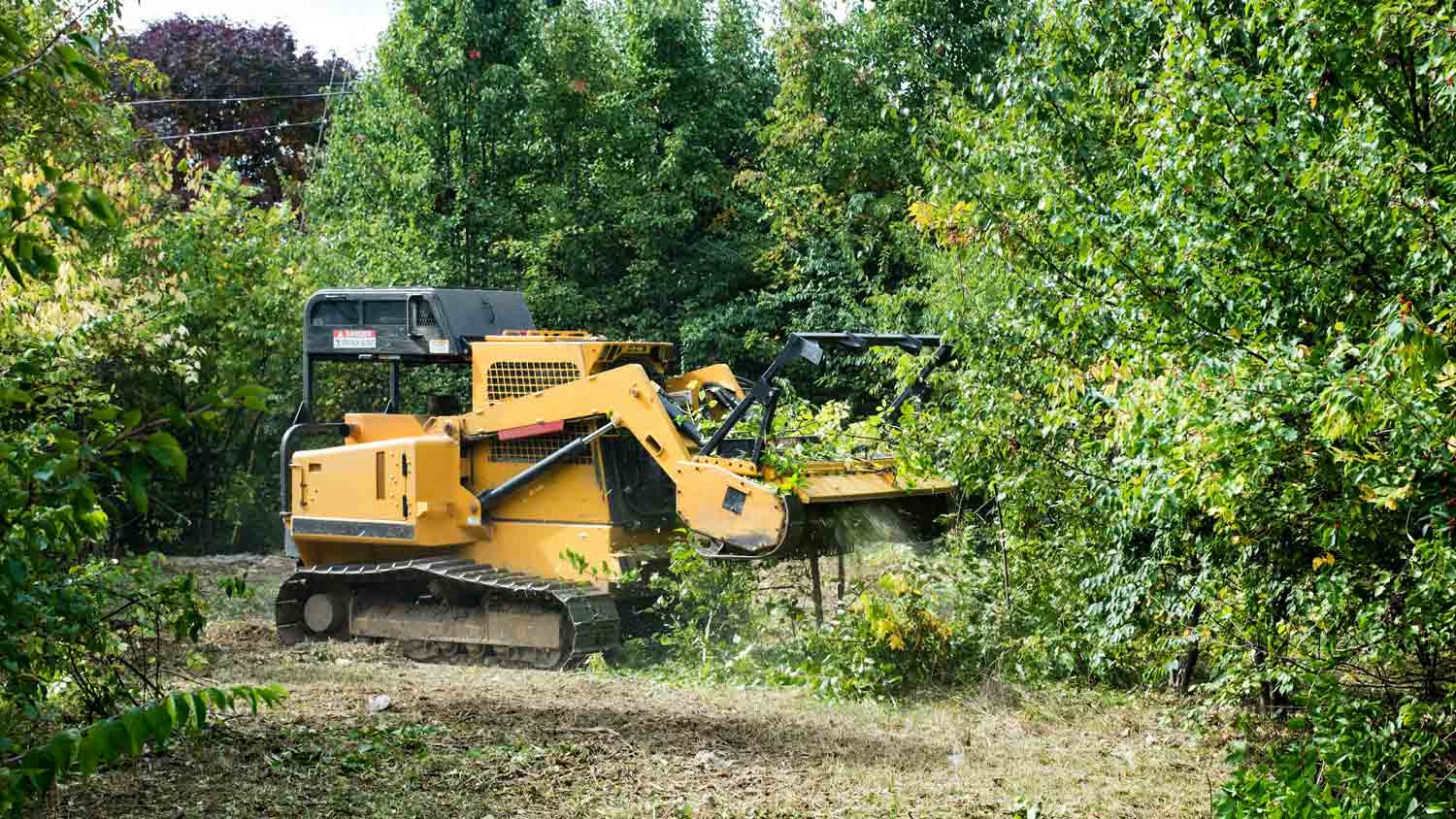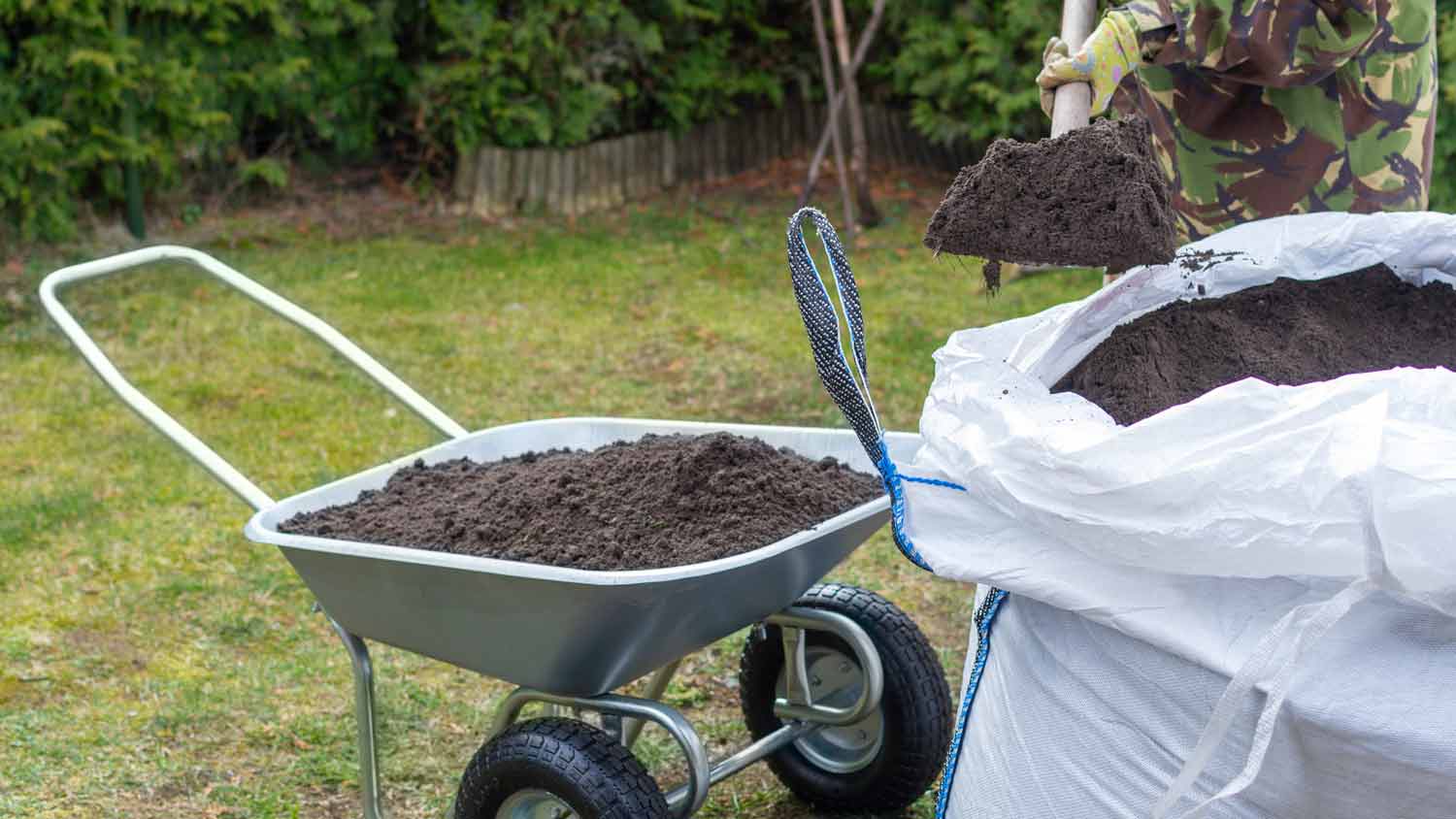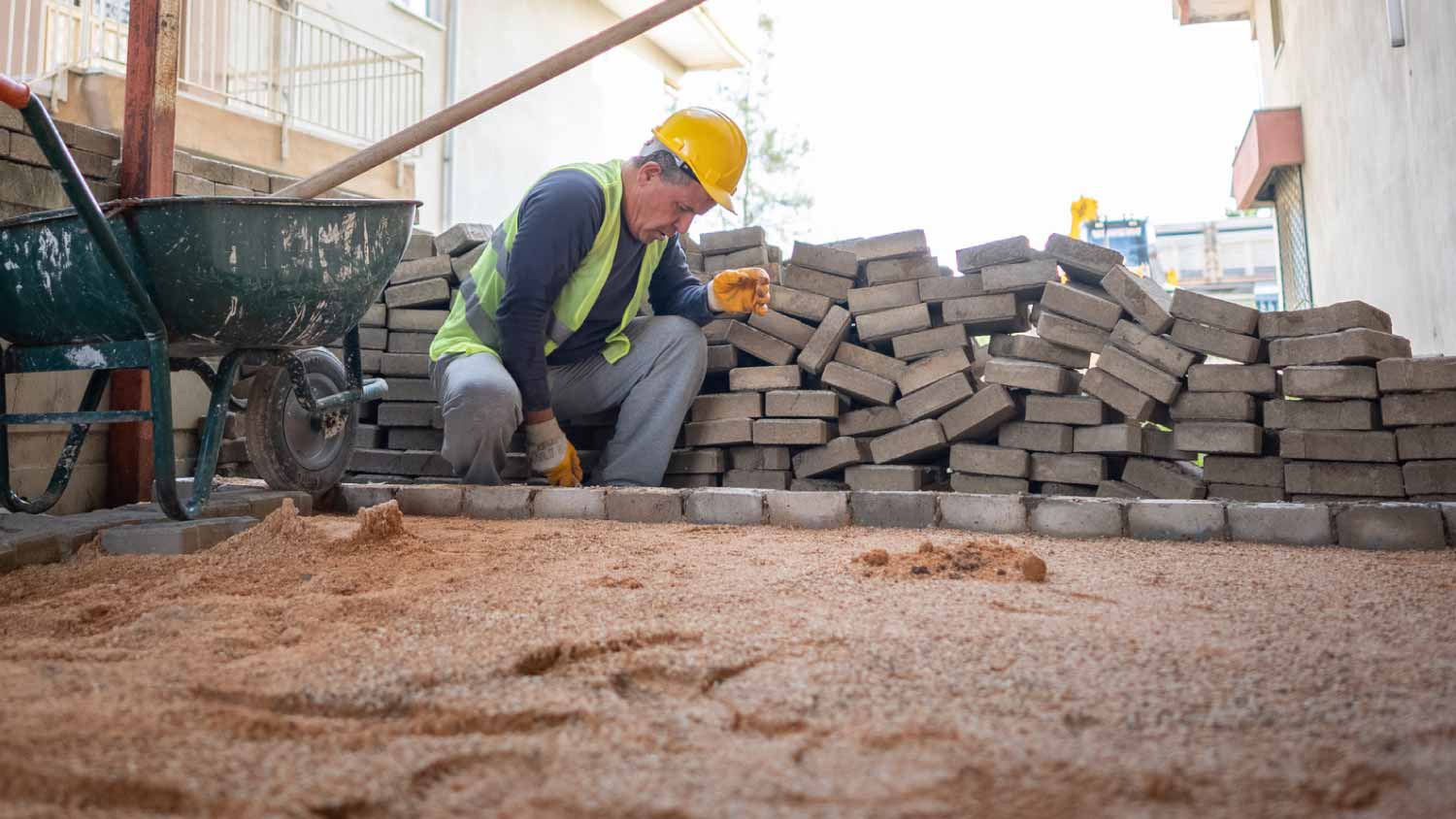
Find out how much a soil test costs and what you get for your money with our expert guide. Know what to budget for different types of soil tests.
Gravel prices average $1,800, although it can cost as little as $600 or as much as $3,500, depending on gravel type.


Gravel costs $600 to $3,500 on average.
You can save by buying in bulk, as gravel costs $20 to $100 per cubic yard or $10 to $50 per ton.
The cost of gravel is affected by type, labor rates, delivery fees, and site preparation costs.
Labor costs $30 to $50 per hour, but pros can complete the job safely and efficiently.
If you’re installing gravel, you’ll pay an average of $1,800. Depending on factors such as gravel type and amount, homeowners could spend anywhere from $300 to $5,000. Local labor rates, delivery fees, and site preparation costs could also impact your bill.
To help homeowners with their next project, Angi provides readers with the most accurate cost data and upholds strict editorial standards. We’ve surveyed thousands of real Angi customers about their project costs to develop the pricing data you see, so you can make the best decisions for you and your home. We pair this data with research from reputable sources, including the U.S. Bureau of Labor Statistics, academic journals, market studies, and interviews with industry experts—all to ensure our prices reflect real-world projects.
Gravel prices vary significantly based on the type, ranging anywhere from $0.40 to $2 per square foot for crusher run to $3.50–$11 per square foot for lava rock. Below is a breakdown of the average cost of gravel for the most common types:
| Gravel Type | Average Gravel Prices (Per Foot) | Average Gravel Prices (By Cubic Yard) |
|---|---|---|
| Rock base | $0.65–$1.5 | $18–$38 |
| Caliche | $0.45–$6.50 | $20–$250 |
| Crushed granite | $1–$3 | $25–$50 |
| Crushed limestone | $1.50–$2 | $30–$115 |
| Crush and run (crusher run) | $0.40–$2 | $20–$25 |
| Lava rock (black gravel) | $3.50–$11 | $75–$85 |
| Pea gravel | $1–$3.15 | $15–$75 |
| Quartz gravel | $3–$10 | $70–$100 |
| Rock pebbles or river rocks | $1.75–$2.60 | $33–$49 |
| Shale | $1–$3 | $20–$60 |
| Shells | $0.60–$4.50 | $40–$86 |
| Steel slag | $1.30–$2 | $25–$40 |

Buying gravel in bulk (by the cubic yard or ton) is more affordable, and it might save you 50% or more compared to buying the same volume in smaller bags. Here’s how much you’ll pay for different amounts of gravel:
| Amount of Pea Gravel | Average Price Range |
|---|---|
| One ton | $10–$50 |
| One truckload | $250–$500 |
| One cubic yard | $20–$100 |
| One bag | $4–$6 |
In addition to type and amount, other factors might affect the cost of gravel. These include labor rates, delivery fees, and site preparation.
Labor: $30–$50 per hour
Delivery: $10 per additional mile outside of the free radius
Land clearing: $1,400–$6,200
Land grading: $1–$2 per square foot
You’ll save $30 to $50 per hour to lay gravel yourself. The total cost of DIY gravel installation can be $250 or more, which includes the price of tools and supplies. Gravel doesn’t require a special skill set, but it’s still tough physical labor, which is why many homeowners hire a pro.
Here are the benefits of hiring a local gravel driveway company or landscaping company near you for gravel installation:
Pros have the expertise to get the job done right, especially when it comes to issues like grading and excavation.
Pros have the necessary supplies, including landscaping fabric, a plate compactor, a mini-excavator, and a truck for hauling.
The work can be physically demanding for homeowners.
Improper installation can lead to uneven surfaces or drainage issues over time.
Here’s when homeowners might DIY the project:
They want to save on labor costs.
They can obtain the necessary supplies.
They have extra time and physical ability.
The project is relatively small and simple.
Whether you’re doing a DIY job or hiring a professional, here are a few ways to save on the cost of gravel
Buy gravel in bulk to save money overall.
Handle prep work yourself, such as removing grass, weeds, and debris.
Choose a lower-cost type of gravel.
Consider a DIY job if you have the tools, knowledge, and physical ability.
Ask your gravel delivery driver if they can spread the material for you by moving their dump truck steadily forward as they dump the gravel (you can offer a tip for this). Doing so saves you hours of backbreaking work, such as wheelbarrowing and spreading.
When installing gravel yourself, you can save $30 to $50 per hour, but the work can be dangerous and labor-intensive for homeowners.
Hiring a professional landscaper ensures the work is done efficiently, and they’ll have the necessary tools for the job.
To save money, you can pay the pro to spread the material, then you can finish the leveling and compaction on your own.
From average costs to expert advice, get all the answers you need to get your job done.

Find out how much a soil test costs and what you get for your money with our expert guide. Know what to budget for different types of soil tests.

Discover the average forestry mulching cost, including per-acre and hourly rates, plus key factors that impact your total price. Get expert tips to save on your project.

Get clear, up-to-date fill dirt cost info. Learn average prices, cost factors, and tips to save on your next fill dirt project.

How long does rubber mulch last? It can last over a decade, making it a long-lasting alternative to organic mulch. Learn about its lifespan and maintenance.

From wood chips to grass clippings, we like to throw around the word mulch. But what is mulch, and how do you use it properly? Let's break it down.

This calculator will help you estimate how much sand you’ll need to complete your hardscape project.